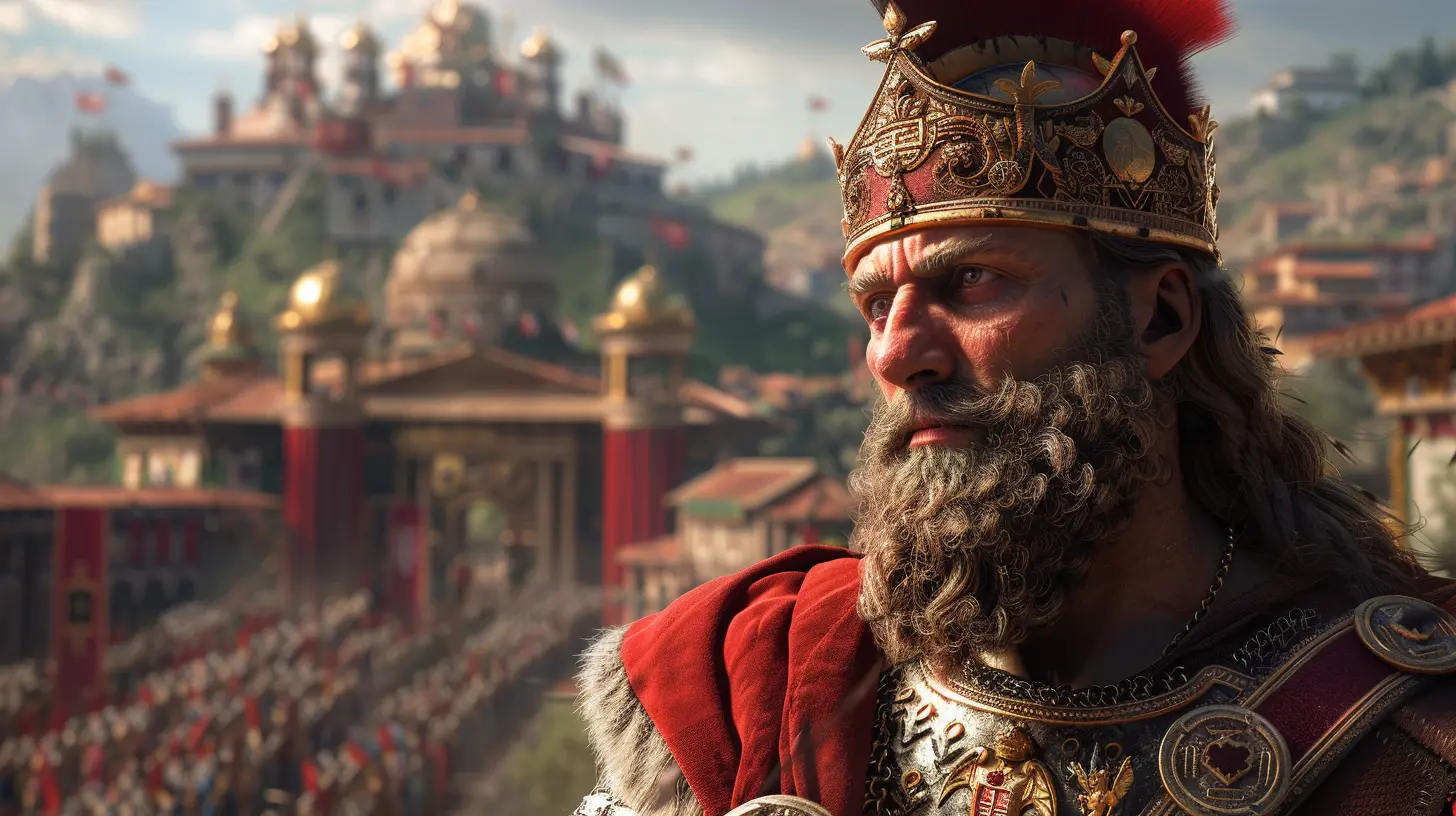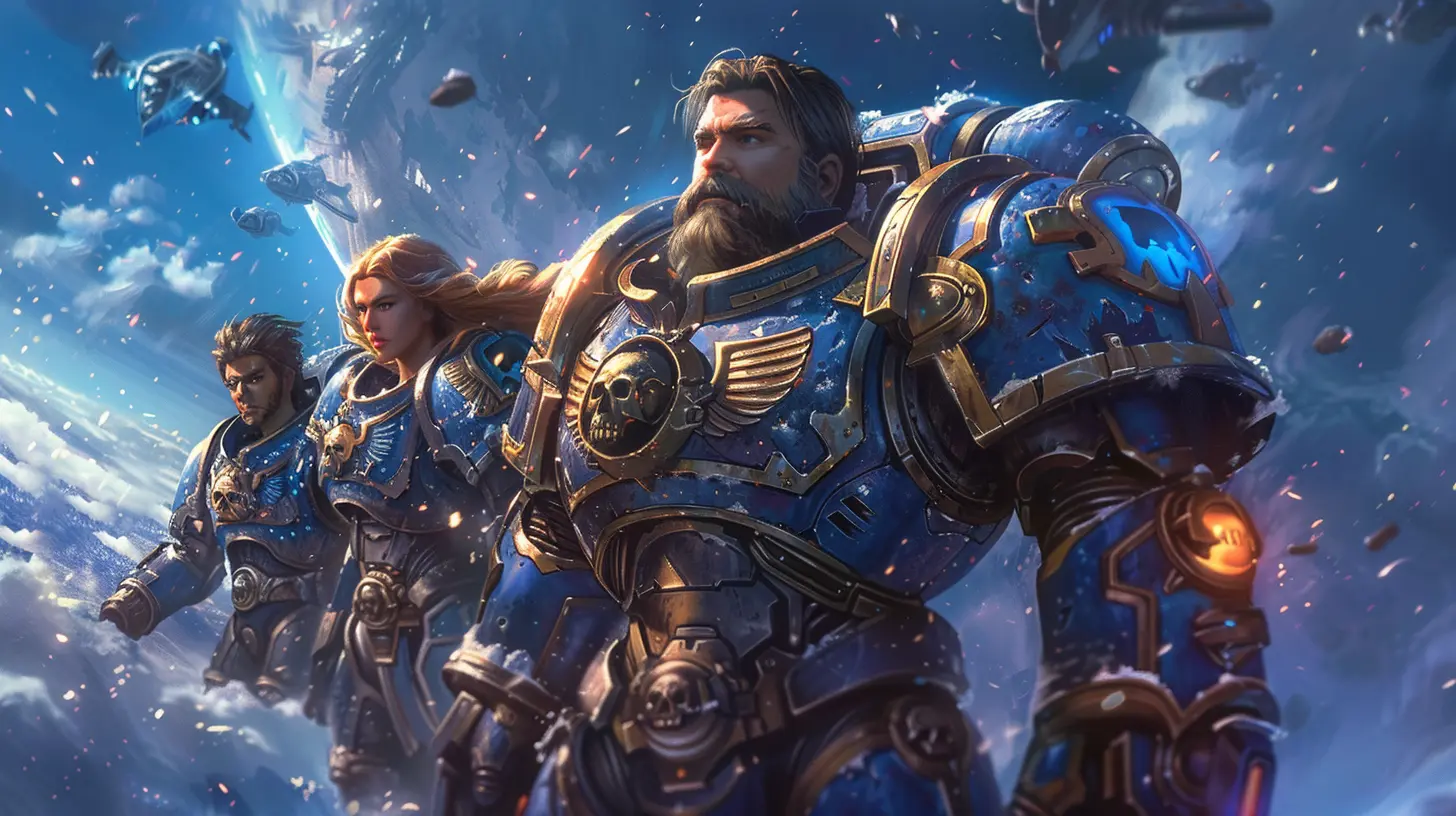Adapting to Different Playstyles: Traits of Successful Strategy Gamers
19 May 2025
Alright, gather ‘round, my fellow virtual tacticians. Let’s talk about strategy games—a genre where you’re out there plotting global domination, micromanaging imaginary armies, or just trying to keep your digital villagers alive despite their apparent inability to chop wood faster. If you’ve ever yelled at your screen because a simulated soldier refused to follow your brilliant plan, you know the agony and ecstasy of strategy gaming. But here’s the tea: not all strategy gamers are cut from the same cloth.
Some of us are ruthless conquerors, while others are peaceful negotiators (you weirdos). Some play like they’re speed-running a war crime tribunal, while others probably take coffee breaks between turns. So, what separates the victorious keyboard commanders from the ones rage-quitting on Steam? It’s all about adaptability. Let’s break down the key traits of successful strategy gamers—and yes, sarcasm is included free of charge. 
1. Patience: Channeling Your Inner Zen Master
First off, let’s address the elephant in the room: patience. Look, I get it—you want results, and you want them five turns ago. But successful strategy gamers know that good things (like conquering an entire map) take time. Winning a strategy game isn’t like nuking leftovers in a microwave; it’s more like slow-cooking a brisket.You can’t just throw your units at the enemy and hope for the best. Try that, and you’ll end up with a pile of ashes and regret. Winners think five steps ahead, calculating every move like they’re playing chess on caffeine. They carefully consider their resources, timing, and goals. Meanwhile, the impatient newbies? They’re the ones sending their cavalry directly into a line of pikes. Spoiler alert: it doesn’t end well. 
2. Flexibility: The “Pivot or Perish” Mindset
You know what they say, “No battle plan survives first contact with the enemy.” Strategy games are basically a never-ending series of curveballs, so if you can’t pivot on a dime, you’re gonna have a bad time.Picture this: you’ve spent the last two hours meticulously building an economic empire in Age of Empires, only for your neighbor to drop a surprise castle in your backyard. Do you whine and quit? Or do you adapt, throw down some defensive structures, and plot your revenge like a petty medieval warlord? The best players choose the petty revenge route every time.
Flexibility also means being open to different playstyles. Maybe you prefer turtling (aka building defenses until the other players get bored), but your strategy isn’t working against that one guy who just discovered trebuchets. Shift gears. Adapt. Find their weakness. Or just bribe someone else to attack them because diplomacy is underrated. 
3. Calculated Risk-Taking: Don’t Be a Coward, But Don’t Be Stupid Either
There’s a fine line between bravery and stupidity, and successful strategy gamers walk it like a tightrope. Do you build that extra farm to feed your population, even though it’ll leave you vulnerable for a couple of minutes? Do you send your fleet halfway across the map, knowing it’s a gamble that could either win you the game or leave you defenseless?The trick is to calculate risks, not throw caution to the wind like a toddler playing with fireworks. Great strategy gamers weigh the potential rewards against the potential disasters. And when they decide to take the plunge, they go all in. Because if you’re going to YOLO, you might as well YOLO with style. 
4. Observation Skills: Channeling Your Inner Sherlock Holmes
Let’s be real—strategy games are just glorified games of “Who’s plotting to stab me in the back first?” If you’re not paying attention to what your opponents are doing, you might as well hand them the victory on a silver platter.Successful players are master observers. They monitor enemy movements, study build patterns, and anticipate strategies before they unfold. It’s like playing poker, except instead of bluffing with a pair of twos, your opponent’s bluffing with a full-blown tank rush.
And let’s not forget about map awareness. If you’re that person who forgets to scout, congrats—you’re the strategy gamer equivalent of someone driving blindfolded. Spoiler alert: it doesn’t end well for you.
5. Adaptability to Meta Shifts: The Neverending Nerd Arms Race
Ah, the dreaded meta. If you’ve ever played multiplayer strategy games, you know how quickly the “best strategy” can change. One week, it’s all about rushing your enemies with fast-moving units. The next week, everyone’s countering that with fortress spam. It’s like trying to keep up with fashion trends, except instead of skinny jeans vs. mom jeans, it’s tank rushes vs. tower defense.Winners don’t cry about changes to the meta—they embrace them. They experiment with new strategies, tweak old ones, and stay one step ahead of the competition. They’re the trendsetters, not the followers. (Or at least, they’re very good at pretending.)
6. Emotional Resilience: Accepting the Inevitable Catastrophes
Look, I don’t care how good you are—strategy games hate you. There will be moments when everything goes wrong. Your carefully laid plans will crumble because of one bad decision, one critical mistake, or just terrible RNG (Random Number Generator for the uninitiated).The question is, how do you deal with it? Do you throw a tantrum, slam your keyboard, and uninstall the game? Or do you grit your teeth, learn from your mistakes, and try again? Successful gamers choose the second option (though I won’t judge if you scream into a pillow first).
Think of it this way: every failure is just a tutorial in disguise. Sure, it’s a tutorial that makes you want to punch a hole in your monitor, but it’s still valuable.
7. Resource Management: Balancing the Economy Like a Virtual Accountant
If you’ve ever found yourself broke in a strategy game, you know how painful it is. No gold? No army. No food? Your villagers start dropping like flies. No wood? Kiss your buildings goodbye.The best players manage resources like their virtual lives depend on it (because they do). They strike a balance between saving and spending, hoarding and investing. They know when to prioritize building an army, when to tech up, and when to focus on just not starving to death (cough, Banished players, cough).
And if they’re really good, they’ll make it look effortless—like they just casually stumbled into the perfect economy while the rest of us are panicking over a shortage of sheep.
8. Multitasking: Because One Crisis at a Time Is Too Easy
Strategy games love to throw multiple problems at you simultaneously, like some sort of sadistic stress simulator. Your base is under attack? Cool. Also, your economy is collapsing, your ally just asked for reinforcements, and half your army is stuck in a chokepoint.The best gamers don’t get overwhelmed—they thrive in chaos. They juggle tasks like a circus performer spinning flaming plates while riding a unicycle. (Meanwhile, the rest of us are sobbing into our keyboards because we forgot to queue up workers.)
9. Creativity: Thinking Outside the Meta Box
If you’re blindly following the same strategy every game, congratulations—you’re predictable. And in strategy games, predictability is just another word for “easy target.”The masters of the genre don’t just copy what everyone else is doing. They innovate. They experiment. They come up with strategies so bizarre that their opponents don’t even know how to counter them. Sometimes it works. Sometimes it’s a spectacular failure. But when it works, it’s glorious.
Think of it like cooking: sure, you could follow the recipe, but where’s the fun in that? Sometimes, you’ve gotta throw in some extra spice and hope for the best.
10. Collaboration (or Ruthless Manipulation): The Art of Alliances
Ah, alliances—the frenemy relationships of the strategy world. Whether you’re teaming up in a cooperative game or forming temporary truces in a competitive one, knowing how to work with others is a crucial skill.But let’s be honest: most alliances in strategy games are just elaborate forms of betrayal waiting to happen. The best players know how to manipulate alliances to their advantage. They play their allies like a fiddle and then strike when the time is right. (Reminder: trust no one.)
Or, if you’re feeling less Machiavellian, you could actually cooperate and share resources. But where’s the drama in that?
Final Thoughts: Adapt or Get Wrecked
At the end of the day, success in strategy games boils down to one thing: adaptability. Whether you’re playing against ruthless AI or actual humans with way too much free time, the ability to adjust your tactics, learn from your failures, and stay one step ahead of the curve is what separates the legends from the noobs.So, next time you’re knee-deep in a strategy game, remember: it’s not about who clicks the fastest or yells at their monitor the loudest. It’s about who can adapt, improvise, and overcome. And if all else fails, just blame lag.
all images in this post were generated using AI tools
Category:
Strategy GamesAuthor:

Emery Larsen
Discussion
rate this article
4 comments
Cecilia Hamilton
Great article! Understanding and adapting to various playstyles is crucial for success in strategy games. Emphasizing flexibility, critical thinking, and communication can truly enhance gameplay experiences. Players should embrace diverse tactics to outsmart opponents and improve overall strategy.
May 27, 2025 at 2:36 PM

Emery Larsen
Thank you for your insightful comment! I completely agree—flexibility and communication are key to mastering diverse playstyles in strategy games.
Brooke Fields
Embrace flexibility; successful gamers thrive by adapting to diverse strategies.
May 24, 2025 at 3:14 AM

Emery Larsen
Absolutely! Flexibility is key; it allows gamers to pivot and succeed across varying strategies and playstyles.
Lyla Wilkins
This article insightful highlights the adaptability and diverse strategies that define successful strategy gamers. Understanding and embracing various playstyles is crucial for growth and competitiveness in the gaming community. It's great to see such an in-depth exploration of what makes gamers thrive in dynamic environments. Well done!
May 23, 2025 at 4:32 AM

Emery Larsen
Thank you for your thoughtful comment! I'm glad you found the article insightful and appreciate your recognition of the importance of adaptability in gaming.
Freya Oliver
Embrace the diverse playstyles in strategy gaming! Adaptability is your greatest ally; learn from each match, grow stronger, and celebrate every victory—big or small. Remember, it’s not just about winning, but the journey and skills you develop along the way!
May 22, 2025 at 2:31 PM

Emery Larsen
Absolutely! Embracing diverse playstyles is key to growth in strategy gaming. Each match is a learning opportunity that enhances skills and enriches the gaming journey.



